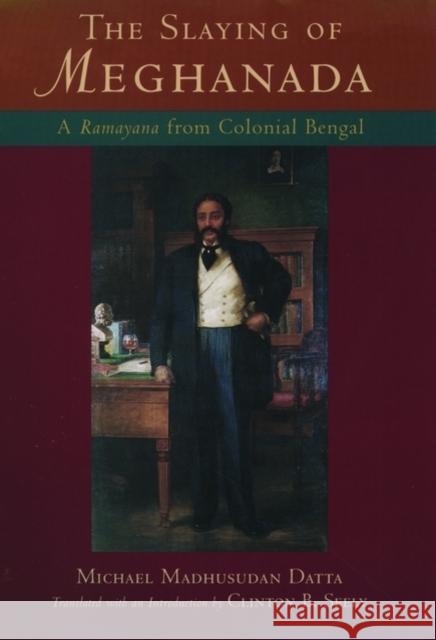The Slaying of Meghanada: A Ramayana from Colonial Bengal » książka
The Slaying of Meghanada: A Ramayana from Colonial Bengal
ISBN-13: 9780195167993 / Angielski / Twarda / 2004 / 288 str.
"The poem is rising into splendid popularity. Some say it is better than Milton-but that is all bosh-nothing can be better than Milton; many say it licks Kalidasa; I have no objection to that. I don't think it impossible to equal Virgil, Kalidasa, and Tasso." Michael Madhusudan Datta wrote this in a letter to a friend about his verse narrative, The Slaying of Meghanada (1861). The epic, a Bengali version of the Ramayana story in which Ravana, not Rama, is the hero, has become a classic of Indian literature. Datta lived in Bengal at the height of what is frequently called the Bengal Renaissance, a time so labeled for its reinvigoration and reconfiguration of the Hindu past and for the florescence of the literary arts. It was also a period when the Bengali city of Kolkata was a center of world trade-the second city of the British empire-and thus a site of cultural exchange between India and the West. Datta was the perfect embodiment of this time and place. The Slaying of Meghanada is deeply influenced by western epic tradition, and is sprinkled with nods to Homer, Milton, and Dante. Datta's deft intermingling of western and eastern literary traditions brought about a sea change in South Asian literature, and is generally considered to mark the dividing line between pre-modern and modern Bengali literature. Datta's masterpiece is now accessible to readers of English in Clinton Seely's elegant translation, which captures both the sense and the spirit of the original. The poem is supplemented by an extensive introduction, notes, and a glossary.











